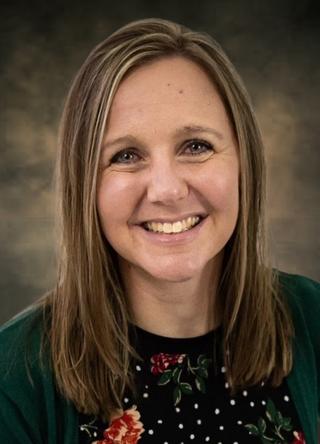Planning for homeschool high school can seem overwhelming.
Our Homeschool Iowa Conference Speaker,
Kristin Lackie,
with Credits Before College,
shares these useful tips to help you find your way.
I loved homeschooling my children through the elementary years! Yes, there were challenges; we all have them, but as a whole, day-to-day and week-to-week planning served us well. We did a little math. We read a lot of books. We met friends and visited a lot of fun places.
Believe it or not,
the love of homeschooling
doesn’t have to end
once students hit seventh grade.
Despite what many may think, homeschooling through the middle and high school years can be just as rewarding. You might be wondering, “Is that even possible?” The answer is a resounding, “YES!”
The main difference between homeschooling elementary versus homeschooling the upper grades is that it is important to move beyond the day-to-day toward a big picture perspective. Even so, the core values of faith and character development continue all the way to graduation day and beyond.

FIRST:
Cover Core Classes
When planning for homeschool high school, select a rigorous curriculum which covers core classes faithfully. Most students don’t have a clearly defined direction for life after high school. It is our job as parents to prepare students for whatever road the Lord leads them down and to equip them to begin thinking about it during the high school years. Whether your student is interested in college or not, there is wisdom in planning with college in mind simply because that target results in a solid educational foundation.
Thankfully, you won’t need a doctorate to homeschool your children well in high school because, in the upper grades, parents transition to become facilitators. As facilitators, the goal is to monitor and adjust studies in order to challenge, not overwhelm. Your role is to put classes into perspective and present the purpose and point of educational goals. You can’t teach your children everything they need for life and happiness by the end of high school, but you can set a solid foundation. As you’re pursing this goal, keep in mind the reason you chose to homeschool in the first place.
The same why
of homeschooling in the elementary years
should permeate
your student’s upper grade coursework as well.
Science is not just about memorizing elements in the taxonomy of living organisms or the properties and behaviors of matter. Math is not just about finding the properties of derivatives and the integrals of functions. Rather, both science and math engage students in critically thinking about and attempting to understand God’s order and design for this amazing world and the people He created in it.
History is more than memorizing people and places. Rather, it is a chance to study the ramifications of theological and political ideals while evaluating the impact of those ideals on cultures and generations. Genesis affirms that, in the beginning, God created. As His image-bearers, we too create: music, poetry, sculpture, and art. How does an artisan approach creation in a way that brings honor to God?
Studying language arts teaches us to be effective communicators as we steward the gifts and talents God has designed in us to work as ambassadors for Christ in the world. Through applying diligence in core classes, choosing character over curriculum and relationship over grades, you can reach the endgame of graduating creative critical thinkers who love the Lord and are positioned to act on His calling.

SECOND:
Prevent Repetition
Beyond covering core classes faithfully, a second reason to keep the big picture in mind when planning for homeschool high school is to prevent excessive repetition.
When I was a student, I studied the history of the United States in elementary school, middle school, high school, and again in college. Why?
As homeschoolers,
we can think differently
about our children’s education.
Students can gain high school credit for work done at a high school level, regardless of when it is completed. Most middle school students are capable of more than is typically asked of them. Distribute your coursework and begin high school work as soon as your student is ready. You don’t have to wait until ninth grade. Teach subjects once within the middle and high school years. Teach them well. Move on.
In addition to planning to cover subjects once, capitalize on academic overlap by bundling similar subjects. For example, teach world religions alongside world history. Examine the interplay between religion and culture. Craft writing assignments and projects to effectively communicate learning. Dive deep into the material through integrating multiple subjects together to gain a broader understanding of concepts, then move on.
Using an interdisciplinary approach as a foundation, your student will gain a deeper and more comprehensive grasp of the material and still have additional time for personalized pursuits.

THIRD:
Customize & Follow Interests
Planning for homeschool high school with a “one and done” approach frees up blocks of time to customize your student's educational plans. You can take into consideration individual interests and aptitudes as well as your own expectations for what you want your student to accomplish. Include valuable courses, like economics, personal finance, or career exploration.
Give your student time and opportunity
to explore hobbies
and areas of passion and interest.
A hands-on student might focus on courses, such as environmental science, computer technology, or robotics, where he can apply his studies. A student interested in computer technology might take courses in coding or graphic design.
Develop a spirit of collaboration with your student so he/she is invested in the planning process and will value the courses included in the high school plan. Discuss what your expectations and goals are and how you will work together to achieve them.
Is your student going into a trade? Is there an apprenticeship program available? Can your student work part-time or during the summer with someone in the field? Students as young as seventh grade can begin to learn about the marketplace and their role in it.
Help your student bridge the gap between education and vocation through meaningful, personalized workplace experiences.

Aim Toward
the Big Picture
My oldest will graduate from high school this spring. She was recently scrolling through graduation-themed quotations and shared this humorous, and yet sobering, thought: “Congratulations on getting through the easiest part of your life!”
Perhaps what this amusing adage implies is that, for most students, high school graduation is just the beginning of life’s challenges. We don’t know the difficulties that lie ahead for our children, but we know and serve a God who does. We do what we can to prepare our children to the best of our ability, and the rest is up to Him!
The big picture of faithfully covering core classes, avoiding needless duplication, and customizing to follow interests will set your upper grade students up for success. This will free them to pursue interests specifically tailored to God’s call on their lives. What a blessing!
As homeschool parents,
we walk alongside our students,
slowly releasing them
into the great adventure
God has prepared in advance for them to do.

Kristin Lackie
Credits Before College
Kristin Lackie is a homeschool parent and educator. She and her husband live in Minnesota and are currently homeschooling two of their four children, with the other two now homeschool high school graduates.
With an in-the-trenches perspective, Kristin brings humor and reality to what can sometimes feel like a daunting task: homeschooling all the way to graduation day.
Committed to saving both money and time, Kristin presents practical, but often overlooked, strategies to graduate college debt-free utilizing opportunities to maximize the middle and high school experience while casting a vision for college and beyond.
Kristin has been the featured High School & Beyond Special Track speaker at several of our recent Homeschool Iowa Conferences.
MORE FROM OUR WEBSITE:




One Comment on “Planning for Homeschool High School”
Beautiful article, thank you!